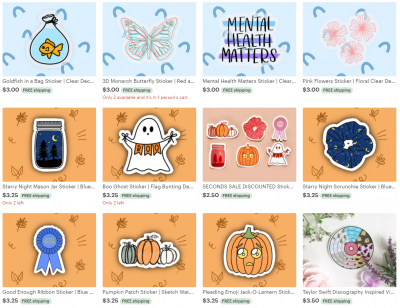By Akhila Penumaka
As students spent the last several months largely indoors due to the coronavirus pandemic, many have had more free time than expected. In that extra time, some Boston University students have gotten creative and started new projects to help them pursue their academic and personal goals.

These young entrepreneurs made use of resources and connections from BU to help them turn their visions into reality.
Among them is College of Communication junior Gloria Robinson, a public relations major who founded Go Off, a social platform for Generation Z to connect with one another and discuss trending media topics online. Without the pandemic’s lockdown, she said, Go Off wouldn’t have gotten off the ground.
“In some ways, I think it’s actually been a blessing in disguise in the sense that more people had time to work on it and were able to be a lot more efficient about getting stuff done,” Robinson said. “If life was the way it was before [COVID-19], I swear I would not be able to run a business.”
Robinson’s advisors included BU alum Anthony Harrison, a former media relations director at Facebook, as well as mentors at the BUild Lab. Robinson and her team applied to and received funding through BUild Lab’s Summer Accelerator, a 10-week program that was hosted virtually due to the pandemic.
Robinson said she wanted to create Go Off to provide a space for young people to have substantive conversations online. She said she believes the platform and its spaces will incite users to think critically, even when they’re alone.
“The biggest thing that I hope for Go Off is that our goals and our values are aligned with what we’re incentivizing people to do on our website,” Robinson said.
For COM and College of Arts and Sciences senior Ethan Brown, quarantine involved watching comedians like John Oliver, who inspired Brown to start discussing issues in a similar structure. Brown launched The Sweaty Penguin, a podcast that uses a comedic approach to discuss environmental issues.
Brown, who has a background in comedy writing, launched the podcast in April hoping to bridge the partisan divide on environmental issues in an entertaining way. His podcast features professors from across the nation and the globe, including from Canada, Switzerland and Kenya.
Brown said his Media Business Entrepreneurship professor, Robert Gustafson, and the BUild Lab helped him formulate and launch the podcast.
“I’ve been lucky to receive a lot of mentorship through the process,” Brown said. “This is definitely the most important work I’ve ever done in my life.”
Alongside Brown, five BU students and a recent COM alum form The Sweaty Penguin team and have released 19 weekly episodes so far, as well as a series of blog posts.
Other students have used their time in quarantine to start personal businesses. CAS sophomore Christine Le launched a shop on Etsy dubbed lilacfinches, which sells items such as greeting cards and stickers that make use of digital art.
“Sometimes I didn’t find what I was looking for [online],” Le said, “so I figured I should just start making my own [stickers].”
Le said she started lilacfinches because of the extra time she had due to the pandemic-imposed lockdown. After classes began, she said she was concerned about how to balance academics and her business, but that she has figured out a way to do both.
“It’s just like how you schedule a time into your schedule to do homework, you have to schedule time into your day to make social media posts and work on new products,” Le said. “You have to make sure that that’s also on your mind and it’s not just gone.”
Once the pandemic is over, Le said she would like to sell her products in person at craft fairs.
Robinson said those interested in developing a business or beginning a creative endeavor must be willing to go through the process of finding a solution to a user’s problem.
“Fall in love with the problem,” Robinson said. “It’s those little things every day that really is where innovation happens.”























































































































